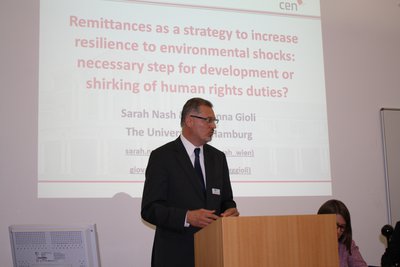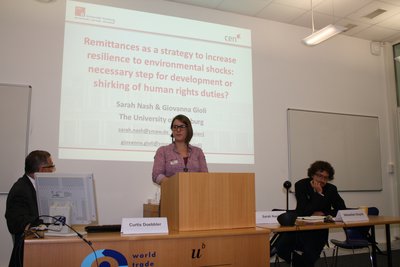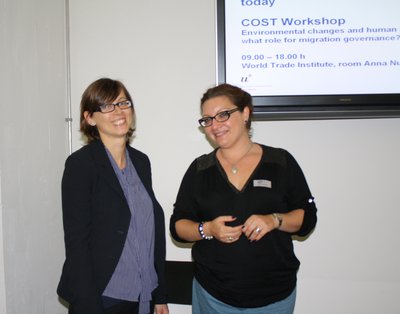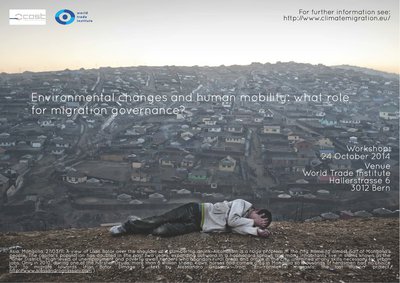31 Oct 2014
Facing up to the challenges of climate-driven migration
Curtis Doebbler, Webster University
From flooding in Bangladesh to drought in Kenya: in many parts of the world climate change is accelerating, destroying environments and prompting migratory flows. States are waking up to the challenges and considering how to respond to these movements of people – both internal and cross-border. A conference held at the WTI on 24 October considered the global challenges of governing migration and the gaps in the current legal framework.
The conference was organised by WTI researcher Elisa Fornalé under the auspices of COST Action IS1101 Climate Change and Migration, a European Union scientific cooperation initiative. It brought together an international expert group of geographers, political scientists and lawyers from academia and international organisations.
Opening the workshop, a film by photographer Alessandro Grassani documenting the plight of environmental migrants threw the issue into stark relief, depicting the results of tribal clashes in Kenya over grazing land and water, and the squalor of overcrowded urban slums as villagers escape flooding in Bangladesh.
Families and communities are torn apart as people migrate. A brain drain and labour and market imbalances can result. But receiving communities are also affected. Cultural differences and pressure on resources can easily lead to conflict. States need to find ways to ensure the rights of the displaced while relieving the burden on the place of destination.
“States can see the likelihood of displacement will increase and they must prepare,” commented Hannah Entwisle-Chapuisat of the Nansen Initiative, a consultative process set up by Switzerland and Norway to address the needs of those displaced by natural disasters.
Taking responsibility
The problem is that migration touches on various spheres of governance and with multiple managers there is no one entity to take responsibility, said Maxine Burkett of the University of Hawaii, summing up the key issue - the lack of a single management regime.
As people migrate they carry their culture with them. Ilenia Ruggiu of the University of Cagliari addressed cultural differences and the fact that culture is only considered a right at the international level. While 180 world constitutions recognise freedom of religion, only 50 recognise cultural rights. This legal gap remains to be filled.
Sarah Nash of the University of Hamburg stressed that it is the state that has a central role to fulfil in granting migrants’ human rights. Few countries have so far ratified the international convention on protecting migrant workers’ rights.
People need to be at the focus of discussion, she argued, those people who lose their connection with their culture and land when they are forced to relocate. As Marine Franck of the UNHCR pointed out, this strong attachment to their land means that people do not leave unless they have to. Leaving is a strategy of adaptation, and sometimes the best option available. The challenge is to create an enabling environment for relocation in consultation with receiving communities, she said.





